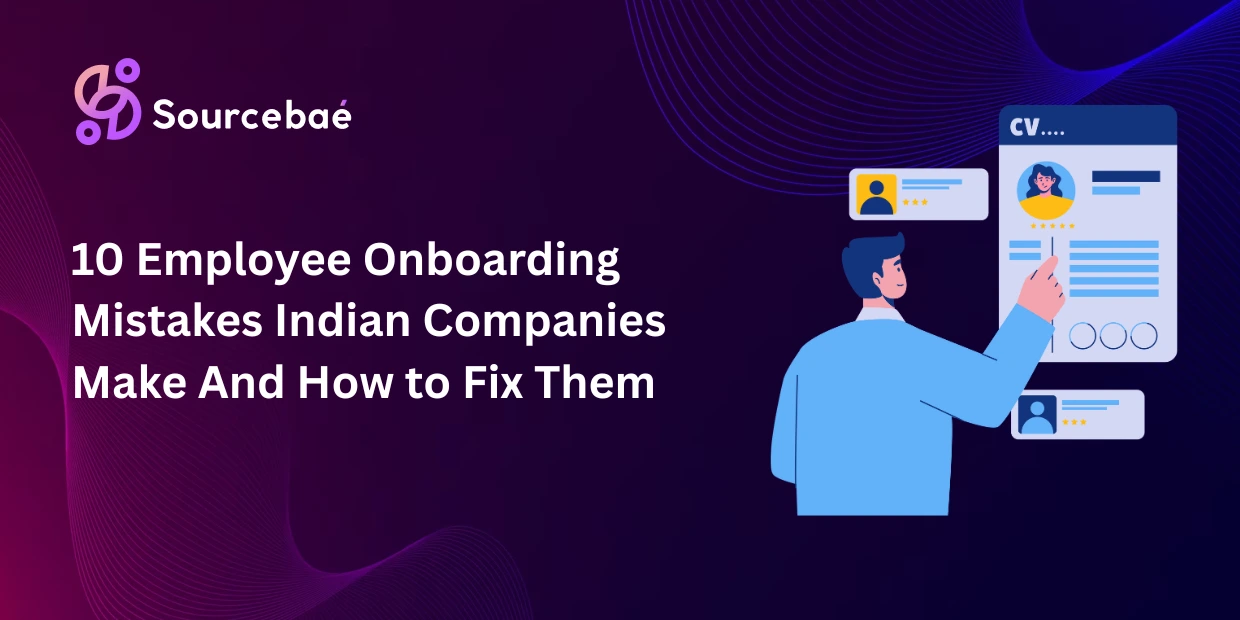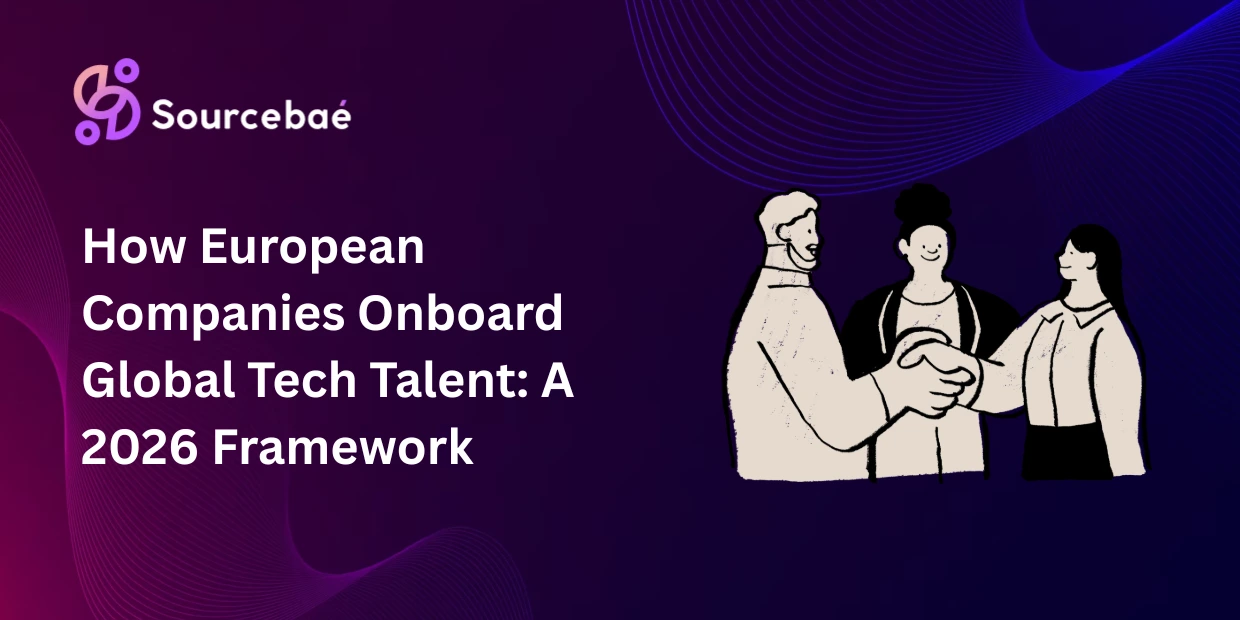Global Capability Centers (GCCs) have evolved into critical strategic entities for multinational organizations. Often positioned in talent-rich locations with robust infrastructure, GCCs deliver specialized functions ranging from technology and analytics, finance, human resources, to operations management. With accelerated digital transformations and evolving market dynamics, GCCs have firmly positioned themselves at the heart of organizational growth strategies. By 2025, capabilities within these global hubs are anticipated to significantly expand in scope, sophistication, and demand.This blog post thoroughly discusses the roles most commonly hired in GCCs by 2025, enabling both businesses and professionals to prepare proactively for what’s ahead.
Understanding these roles is crucial for companies seeking competitive advantages through talent acquisition and equally essential for career-minded individuals aiming to strategically position themselves within this thriving ecosystem.
Overview of GCCs in 2025
In recent years, the GCC landscape has experienced exponential growth. According to industry analysis, global spending on GCCs will surpass earlier projections by 2025—a reflection of their increased strategic importance. Prominent regions with pronounced investment momentum include India, Eastern Europe, South East Asia, and Latin America, thanks to their highly skilled workforce, technological capabilities, cost-efficient operations, and conducive business environments.
Industries such as technology, financial services, healthcare, retail, e-commerce, and professional services continue to leverage GCCs proactively, aiming to access broader global talent pools and drive innovation-centric growth. Factors such as progressive automation, AI adoption, digital transformation, hybrid workforce trends, and evolving talent requirements are redefining the GCC hiring landscape continuously.
Key Hiring Trends Shaping GCC Roles in 2025
Accelerated Demand for Digital and Technological Skills
Technology integration will continue to drive demand for highly specialized, tech-savvy talent. Skills in AI, machine learning, cloud computing, cybersecurity, and data analytics will top recruitment agendas due to substantial digital transformation.
Automation and Human-AI Collaboration
GCCs will increasingly embrace AI-driven automation, reshaping traditional roles towards more strategic and analytical tasks. Roles have evolved from purely operational and transactional to highly complex functions requiring deeply specialized skills.
Hybrid Workforce and Role Adaptation
A permanent shift toward remote and hybrid working models significantly impacts GCC recruitment strategies. Hiring processes and roles specifications are adapting accordingly, with greater emphasis on flexibility, virtual collaboration capabilities, and digital proficiency.
Rising Significance of Soft Skills and ESG Competencies
Companies are also actively recruiting talent that helps foster global collaboration, enhance diversity, and promote a strategic emphasis on Environmental, Social, and Governance (ESG) priorities. Soft skills such as emotional intelligence, adaptability, and cross-cultural competence increasingly determine recruitment outcomes.
Most Commonly Hired Roles in GCCs in 2025
Let’s deep dive into the crucial roles that GCCs will heavily recruit and nurture due to immense growth potential by 2025:
A. Technology and Digital Transformation Roles
1. Data Scientists & Data Analysts
As businesses thrive on actionable insights, data roles remain predominant within GCC recruitment. Responsibilities include developing sophisticated models, advanced analytics, and interpreting data-driven business insights. Preferred skillsets include advanced analytics knowledge, proficiency in Python/R programming languages, expertise in cloud platforms (AWS, Azure, GCP), and familiarity with contemporary big data tools.
2. AI and Machine Learning Specialists
Artificial Intelligence implementation within core processes amplifies the importance of AI and Machine Learning Specialists. These experts design intelligent automation workflows, predictive analytics models, and advanced data-driven solutions. Essential skills encompass knowledge of machine learning algorithms, NLP, deep learning frameworks (TensorFlow, PyTorch), and cloud-based AI solutions.
3. Cybersecurity Specialists
Increased digitalization heightens cybersecurity risks—hiring cybersecurity specialists becomes critical for secure GCC infrastructure management. Duties cover real-time threat monitoring, system security assessments, compliance adherence, and vulnerability management. Necessary skills involve ethical hacking, threat intelligence, cloud security proficiency, and cyber-risk analysis.
4. Cloud Professionals
As organizations transition into cloud-first ecosystems, the demand for Cloud Architects, Engineers, and Administrators peaks. Required expertise includes cloud infrastructure planning, architecture, optimization, cloud migrations, and management of AWS, Azure, or GCP environments.
5. Software Engineers & Developers
Continuous innovation and agile delivery amplify the hiring of software engineers and developers. Talent specializing in application development, SaaS platforms, agile methodologies, full-stack expertise, and DevOps protocols finds significant opportunities in GCCs.
B. Business & Management Roles
1. Project & Program Managers
With complex cross-border initiatives, GCCs prioritize recruiting skilled program and project managers. Certification in PMP/Agile frameworks and effective cross-cultural, virtual-team management expertise become key criteria.
2. Process Excellence & Automation Specialists
Specialists driving operational efficiency, process automation, and Lean practices gain prominence. Familiarity with process-excellence frameworks, Lean methodology, Six Sigma certification, and RPA platforms is crucial.
3. Business Analysts & Domain Specialists
Bridging business and technology functions, these specialists facilitate alignment with corporate strategic objectives. Business Analysts translate strategic goals into technological realities, equipped with domain knowledge, requirement-elicitation skills, and strong stakeholder management capabilities.
C. Finance & Risk Management Roles
1. Financial Analysts & FP&A Specialists
Financial planning, analysis (FP&A), budgeting, and forecasting demands increase, calling for finance specialists with advanced analytical skills and expertise in financial modeling technology.
2. Risk & Compliance Experts
GCCs need robust risk management and compliance culture in line with increased global regulatory scrutiny. Regulatory-compliance experience, risk identification, and audit management credentials are hottest in demand.
D. Human Resource & Talent Acquisition Roles
1. Talent Acquisition Specialists & Recruiters
With hybrid workforces, global talent sourcing skills are particularly crucial. Recruiters proficient in leveraging virtual recruitment techniques and adopting technology-driven hiring solutions become highly desirable.
2. HR Technology Specialists
GCCs increasingly invest in advanced HR technologies to facilitate virtual engagement, analytical performance assessment, and efficient HR operations management. Specialists proficient in HRIS, analytics tools, virtual onboarding technology, and AI-driven candidate screening platforms find notable openings.
Emerging and Niche Roles in GCCs (2025 & Beyond)
Future GCC hiring includes specialized ESG & Sustainability Experts, DEI Specialists, Digital Transformation Change Consultants, Remote Workforce Management leads, and Customer Experience Analysts—reflecting contemporary global strategic emphasis across companies.
Key Skills & Qualifications Most Desired by GCCs in 2025
To thrive within GCC hiring ecosystems, professionals should proactively pursue technical qualifications (AI, data analytics, cybersecurity, cloud computing), relevant certifications (PMP, CFA, Six Sigma certifications, Azure or AWS certifications), and notably sharpen soft skills (emotional intelligence, adaptability, cross-cultural competence).
Challenges & Opportunities for Job Seekers in GCCs
Challenges:
Job-seekers face stringent competition, constant pressure for skill-upgradation, and adapting to hybrid working environments. GCC roles require continuous learning and staying agile due to technological evolutions.
Opportunities:
Professionals can increasingly leverage specialized skills and opportunities for global mobility. GCC roles offer dynamic, innovation-centered environments, providing ample significant career-growth potential.
How Organizations Should Prepare for GCC Hiring Trends
Organizations must invest proactively in upskilling programs, employer brand positioning, utilize advanced recruitment technology, and craft flexible, hybrid-friendly recruitment strategies. Successful GCC recruitment hinges on remaining responsive to technology-driven talent evolutions.
FAQs Section (Frequently Asked Questions)
- What Are GCCs, and Why Are They Increasingly Popular?
GCCs are strategic hubs that allow companies to leverage global talent and technology for efficient, specialized operations. - What Regions See Most GCC Expansions?
India, Eastern Europe, Southeast Asia, and Latin America due to cost, talent availability, and infrastructure advantages. - What Technology Skills Are in Demand at GCC by 2025?
AI, Machine Learning, Data Analytics, Cybersecurity, Cloud Computing, and software development. - What Soft Skills Will Gain Prominence?
Cross-cultural competencies, emotional intelligence, flexibility, and remote collaboration capability.
Conclusion
Recognizing future GCC hiring trends is critical. Strategic and skill-oriented recruitment strategies will position organizations and talent favorably. There’s no better time for job seekers and companies alike to prepare actively and succeed in GCC ecosystems in 2025.
Call To Action (CTA)
Ready to navigate GCC hiring trends proactively? Subscribe today for insights and updates. Download helpful guides on GCC hiring trends, strategies, and skills checklists. We welcome readers to engage by sharing roles currently hired or targeted within GCC operations.






